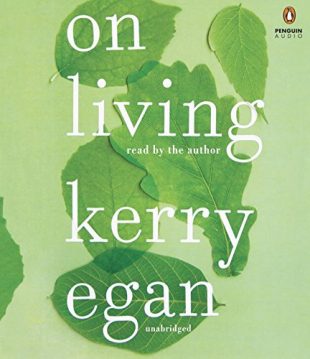[box type=”info” align=”” class=”” width=””]On Living By Kerry Egan 208 pp., $24.00 Riverhead Books, 2016[/box]
Kerry Egan has spent endless hours as a hospice chaplain listening to the regrets and memories of dying patients. She shares their stories in this new book, “On Living.”
“I don’t know,” she writes, “if listening to other people’s life stories as they die can make you wise, but I do know that it can heal your soul. I know this because those stories healed mine.”

The author distances herself from the extreme views of some fundamentalists, such as a dying patient named Louise who believed that as a “born again” Christian she was going to Heaven, while her five children would perish in Hell because they had not been born again. “That makes God a monster, and parenting monstrous, and love a lie,” Egan says.
A patient named Linda requested the author’s help in finding someone who could remove an evil spirit that had been attached to her since childhood. In another case, a dying woman named Sally believed in reincarnation and was convinced that she was Joan of Arc in a previous life. We are not told if the author changed patients’ names and other details to protect privacy.
Egan somewhat awkwardly weaves in her own struggle with mental illness and loss. During an emergency C-section to deliver her first baby, doctors gave her a powerful anesthetic that led to months of psychotic disorders and psychotherapy sessions. She struggled to understand the impact of hallucinations and delusions.
She was “deeply ashamed” of having been psychotic because of “the enormous stigma around mental illness in our society.”
Dying patients deal with regrets about things they did or did not do when they were well. “I’ve never met a single patient who didn’t have at least some regrets.”
Most of the stories are not memorable. Egan sits with patients in various stages of awareness and disability. Some cannot talk and others are hostile, wanting nothing to do with a hospice chaplain. The best she can offer is deep listening, silence and withholding judgment.
“I learned that the best thing to alleviate the suffering of the soul is the kindness of another human being,” she says. “I learned that there is more mystery in the world than anyone taught me when I was growing up.”
Egan was drawn to hospice “in large part because I was afraid of death and illness and wanted to see what was on the other side of that loss. What I found were the patients who healed me. They were all so broken, and so beautiful.”






